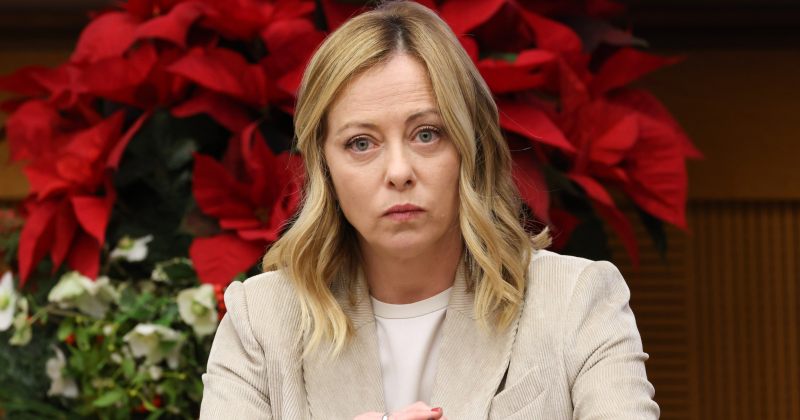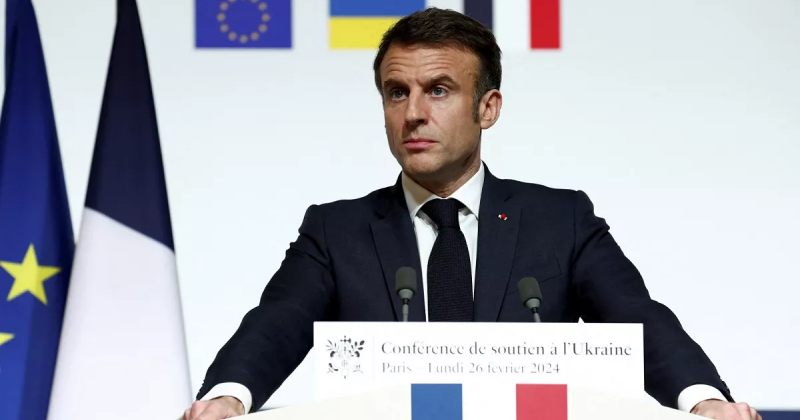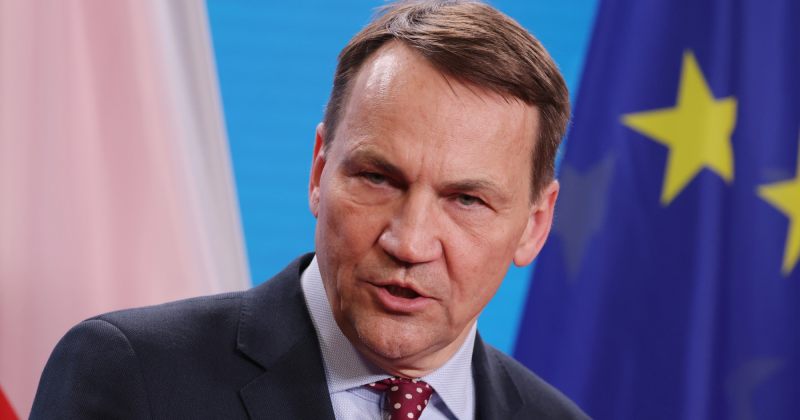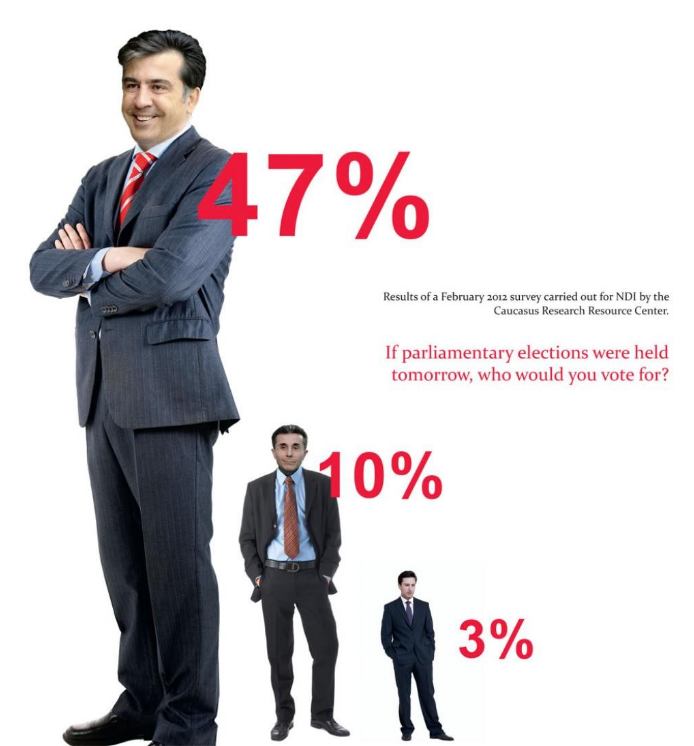
That is the picture depicted by findings of a recent public opinion poll commissioned by the U.S. National Democratic Institute (NDI).
NDI for four years now has been conducting biannual surveys. Release of results of each of its surveys is invariably accompanied by a great deal of political hullabaloo. The reason for the commotion is always the same: NDI never makes public its findings related to political ratings, but instead submits those survey ratings to political parties, which, in turn, provide that information to the press. Critics of the survey results always kick up a fuss because results of the surveys are, naturally, not pleasing for everyone. In an effort to mislead the public, some political forces manipulate the findings. Incompetence on the part of some media representatives further exacerbates the situation. A radical wing of the disgruntled group typically demands that representatives of the survey-commissioning organization be tarred and feathered and impaled. Those who are more “humane” merely call for the expulsion of international research organizations and their clients from the country.
In such a setting, it is not clear why a commissioning organization would not simply publish all the results itself. As International organizations explain their approach, the rankings are intended for internal use of political parties to enable them better to identify election strategies. The fact remains, however, that elections involve not only political parties, but voters as well. Voters need such data about candidates in order to make informed electoral decisions.
Concerning the results themselves, the most recent survey has proved once again that the balance of forces in Georgian politics has not actually changed. The United National Movement maintains its stable position – it has as many voters now as it had prior to the parliamentary elections in 2008 and the local elections in 2010. The only thing that has changed during the past four years has been the names of the opposition leaders. After Badri Patarkatsishvili, opponents of the government next pinned their hopes on Levan Gachechiladze, then waited for Irakli Alasania, and now dream about a change of power with the help of Bidzina Ivanishvili.

The fall in rankings of those political forces started well before billionaire Ivanishvili entered politics. According to a survey commissioned by NDI, the rating of Irakli Alasania’s Our Georgia – Free Democrats party dropped to a mere 4% in March 2011. The Republican Party lagged even behind that, as did its current ally the National Forum, which did not run in the 2010 local elections at all.
Ivanishvili’s vast financial resources and his reputation as a philanthropist have disproportionately raised the hopes of a segment of the opposition. Convinced that the billionaire’s assets will alone suffice to beat the ruling party, that segment does not even bother itself with rectifying mistakes, let alone eradicating personal shortcomings. The fledgling politician also follows that approach. Even though neither the scenario nor the cast of protagonists has actually changed from a year or two ago, Ivanishvili believes, for some unknown reason, that this time will be different – this time the achievement will be extraordinary.
The only thing feeding Ivanishvili’s bloated self-confidence is the belief in his own exceptionality. That is too conspicuous indeed. For example, when Ivanishvili assures the public that he will not repeat mistakes of other Georgian politicians, he refers to his own “manhood, past life and signature” as proof positive of his infallibility. Egomaniacal leaders are not anything out of the ordinary for Georgian politics, but this particular person has entered politics with such eccentricity that he will definitely “astonish Europe.”
So far, however, opinion polls have shown only that Ivanishvili is remarkably similar to previous opposition leaders in siphoning limited votes of the opposition instead of capturing new ones.
The point is that Ivanishvili’s “Georgian Dream” coalition does not offer voters anything that would distinguish it from, say, the National Council or Alliance for Georgia. It’s no wonder those election blocs broke up after their defeat in the elections; it could not have happened otherwise as there was nothing to hold the political parties together in those blocs. They did not even share a common view about the state arrangement – one preferred a presidential model; another championed a republican model; the third favored monarchy; while the fourth, God knows what.
Back then, Irakli Alasania explained the reason for dismantling his coalition by “the difficulty to maintain a political discipline on every issue” within that group consisting of four independent subjects. By that logic, the problem of “political discipline” would also emerge in the Georgian Dream, a coalition which also unites four political parties and even more ambitious politicians. A significant difference with the Georgian Dream, though, is that it is not built upon the equal partnership of its subjects; rather, it is based on a patron-client relationship. For the very reason that “Dreamers” are dependent upon Ivanishvili, they calmly endure such treatment even puppets would not forgive Karabas Barabas. Ivanishvili’s treatment of the Republican Party is illustrative. In a partnership based on mutual respect, partners, as a rule, do not exchange views about one another via a notorious tabloid newspaper such as Asaval-Dasavali. Nor is it customary for a partner to appoint as a regional leader a person (Murman Dumbadze) who was publicly expelled by another partner from its party.
Still, the main impediment for Ivanishvili’s coalition (or for any political alliance set up in the past) is not internal party relations or the absence of a common vision.
The problem lies in the reality that, from the time of the Rose Revolution to the present date, none of the opposition parties has managed simultaneously to meet two necessary requirements: 1) a clear understanding of the public mandate and 2) the ability to convince the electorate that the party is able to fulfill that mandate.

Given population attitudes, it would be logical for a new political figure to promise voters to continue the course undertaken by President Saakashvili and, at the same time, pledge to correct mistakes made by him.
It seems that this particular billionaire does not heed public opinion or draw conclusions from information published in Asaval-Dasavali – the xenophobic tabloid he considers “a clear-cut leader of print media” which maintains a genuine national stance. Ivanishvili has instead decided that his homeland is teetering on the abyss. Such rhetoric reflects the attitudes of only one-fourth of the population which believes, according to the same survey, that the country either has not developed at all or that it is on the wrong path of development and the government does not implement significant changes that matter to them.
Experience proves that bellicose rhetoric scares away that segment of the population which supports continuation and improvement of the existing course. It also raises a feeling among that segment that, if the authority is replaced, the country will change its course. This category of voters may be well aware of the government’s shortcomings, but, seeing no acceptable alternative, votes yet again not to upset the status quo.
For some – say, Georgian Dream coalition member Zviad Dzidziguri – a strategy of “Struggle Today” is considered a rational choice. The Conservative Party leader lacks resources to challenge the United National Movement and to fight for the votes of those who are more or less happy with the existing course and only demand that it be improved. But Dzidziguri can easily engage in rivalry with the Republican Party or the Free Democrats. The irreconcilable one-fourth of the electorate is just enough to secure him a seat in the Parliament or on a local government body, enough for him to receive budget funding and even to benefit further if there is a shift in the position of the ruling party. Any election is a matter of survival for such political forces, which explains the hysteria omnipresent in their rhetoric.
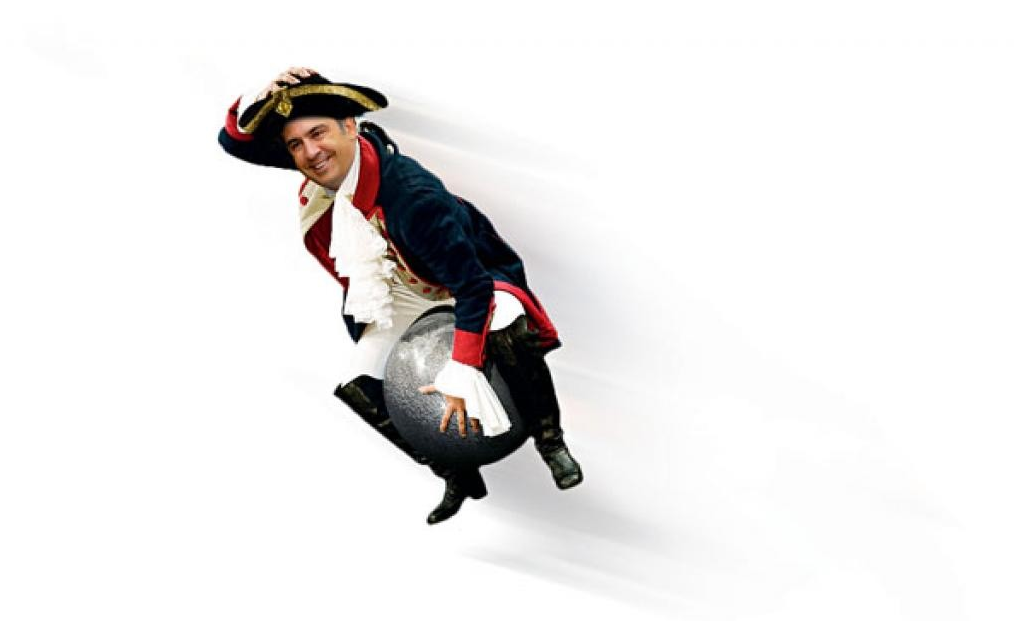
Given such attitudes and environment, results of the recent NDI survey do not seem strange at all. Ivanishvili nonetheless finds it difficult to trust those findings. Instead of critically reassessing his political debut and realizing his mistakes, he reacts inadequately and transforms political theater into tragedy.
The behavior of the Georgian Dream leader fits well into the five recognized stages of grief. The first stage is the denial of reality. Denial then gives way to anger – at this stage, you might even accuse the Foreign Minister of Germany of offending you personally and refuse to attend a meeting with him because he had the great temerity also to invite other political forces which you find unacceptable. Anger is followed by the stage of bargaining, after which the stage of depression sets in. The fifth and final stage of grief – if ever reached – is the acceptance of reality.
Naturally, we have no clue how long it might take for Bidzina Ivanishvili to go through each of those five stages. In the meantime, he may even give up and drop political activity altogether. One can only hope that, with the help of Mentsari, he will successfully overcome any psychological difficulty and will ultimately be able to face the bitter reality.
Clearly, it would be naïve to expect the billionaire, no matter how much he errs, to disappear entirely from the political scene, even if he himself decides to do so. Money allows Ivanishvili to put down deep roots in our political organism. He may linger on as a herpes-like virus which, though incurable, does not pose a grave danger but creates discomfort and makes you ugly in others’ eyes. Georgian Dream has already started moving in that direction. On the other hand, if Ivanishvili succeeds in drawing correct conclusions from his own mistakes, one cannot rule out that developments could take a different turn.
Only the future will tell what is in store for Ivanishvili. For now, one thing is certain – until the opposition breaks out of that vicious circle, Georgian politics will not see any qualitative improvement. The government may often act like Baron Munchausen, but it will not be able to match the feat of pulling itself out of the swamp by its own hair. For it to develop fully, it needs a strong and reasonable opponent. So far, the ruling party has not been challenged by anyone with both those qualities. Until it is, those who will suffer the most are ordinary citizens of Georgia.
This article first appeared in Tabula Georgian Issue # 94, published 2 April 2012.

